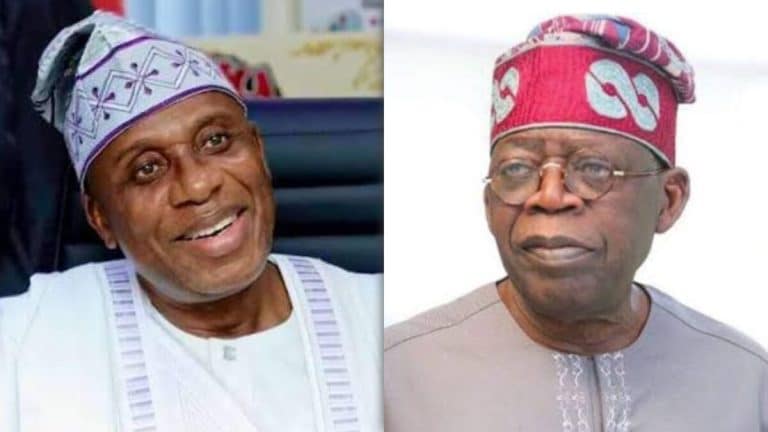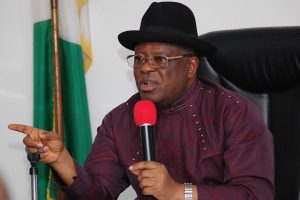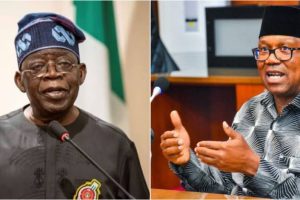
Former Minister of Transportation, Rotimi Amaechi, has strongly criticized President Bola Tinubu’s recent declaration of a state of emergency in Rivers State, alleging that it is a calculated strategy to pressure governors into supporting Tinubu’s re-election bid in 2027.
During an interview with DW Africa on Friday, Amaechi expressed his disapproval, labeling the move as politically driven rather than a response to genuine security concerns.
On March 18, President Tinubu declared a state of emergency in Rivers State, citing escalating political tensions and the sabotage of oil infrastructure as primary justifications. As a result, Governor Siminalayi Fubara, Deputy Governor Ngozi Odu, and all members of the state’s House of Assembly were suspended from office for six months. In their place, Tinubu appointed Ibok-Ete Ibas as the sole administrator of the state.
The president’s decision has sparked significant backlash from various quarters, including civil society organizations and the Nigerian Bar Association (NBA), who have condemned the move as unconstitutional and a potential overreach of executive authority.
Amaechi, who previously served as the governor of Rivers State, contended that the emergency rule was a veiled warning to other governors, signaling that those who failed to align with Tinubu’s political ambitions could face similar repercussions.
“This is about consolidating power. The president is trying to intimidate governors into supporting his re-election in 2027. There is widespread speculation that any governor who does not comply could be targeted next,” Amaechi asserted.
He further challenged the justification of insecurity as a basis for the declaration, arguing that other regions grappling with significant security crises had not been subjected to emergency rule.
“If insecurity was the real issue, then why hasn’t a state of emergency been imposed in regions facing far worse security challenges? The north-east, north-west, and even parts of the south-east and south-west have been dealing with insurgency, banditry, and other threats. Does that mean the president should also be removed because of security issues nationwide?” Amaechi questioned.
The former minister also pointed out that security in Rivers State falls under the jurisdiction of federal authorities, not the state government, thereby making the suspension of Governor Fubara unjustified.
“Governor Fubara has no direct control over security agencies; that responsibility lies with the federal government. So why penalize him for something beyond his control?” he argued.
Amaechi concluded by urging the people of Rivers State to actively resist what he described as an undemocratic action. He encouraged peaceful demonstrations and democratic engagement as a means of opposing the decision, emphasizing the need for the rule of law to prevail.
The unfolding situation in Rivers State continues to generate widespread debate, with political analysts and legal experts weighing in on the constitutional implications of the president’s actions. As the controversy intensifies, the response from key political stakeholders in the coming weeks may determine the broader impact of this unprecedented move on Nigeria’s democratic landscape.





